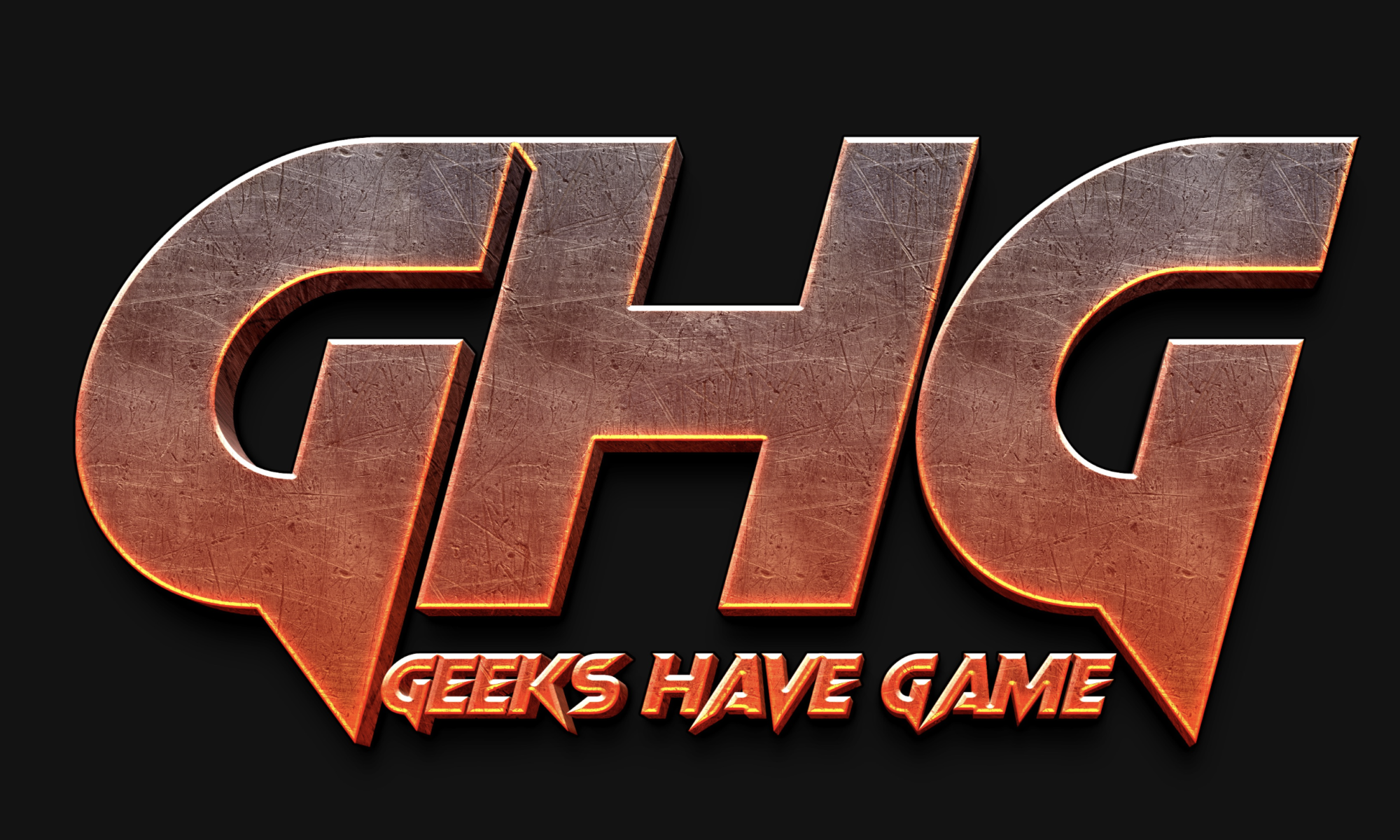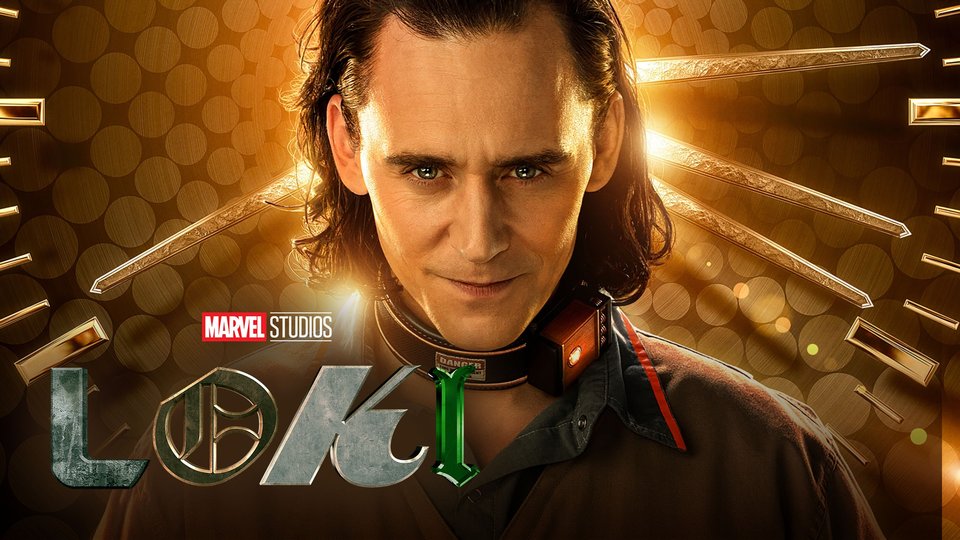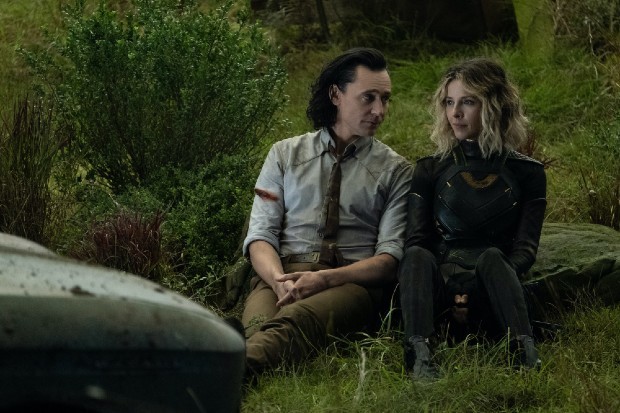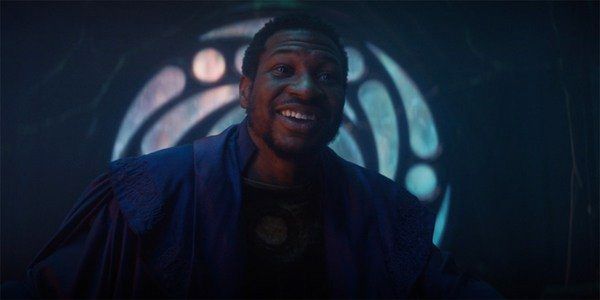
@eggrollko
When Marvel announced that there would be a Loki series on Disney+ back in 2018, I was wary of what that might mean. Loki had just had an emotional death a few months prior. And while reincarnation is canonical for the Asgardians within the comics, I felt like that would be something mass audiences wouldn’t latch onto. Then, Endgame arrived and, along with the eventual first trailer, seemed to indicate that this show would instead be an introduction to and exploration of the Marvel Multiverse; but that raised a couple of much larger questions…
If that was to be the purpose of the show, could they tell a story that completely changes how we understand the cinematic universe without diminishing the meaningful, character driven story that’s been the core of the best Marvel movies? And would they take the risk of making a show that requires a Disney+ subscription pivotal to understanding the movies going forward, particularly when Disney Plus hasn’t even released in every major market yet? When all was said and done, Loki gave a resounding answer to one while leaving the other a complete mystery.
Every episode not only changed the status quo, but decontextualized what the show actually was. Endgame left us with questions — about where Loki went after grabbing the Tesseract and what would happen in the timeline where he escaped — only for the show to immediately have him captured, his timeline reset, and recruit him in the hunt for a different variant Loki. While these episodes were fun and the relationship between Loki and Agent Mobius, played by Owen Wilson, was thoroughly entertaining, it quickly became a show centered on a philosophical debate between predeterminism and free will once we discovered the lengths the TVA were willing to go to in order to protect “The Sacred Timeline”. This is where the show truly came to life.
After learning the backstory of Sylvie, the female Loki variant that the TVA’s been hunting, the show shifted to these two lost people rebelling against a tyrannical organization, stripping people of their free will to ensure the desired timeline remains in tact. Together, they overcome their flaws and insecurities to tear the TVA apart piece by piece until.. they finally arrive to meet the one behind it all: He Who Remains. This is where the show becomes an absolute masterpiece as they completely turn everything on its head once again. Up to this point we’ve seen people being stripped of their free will and once learning of that, fighting to regain it. Then we meet He Who Remains, a variant of Kang the Conqueror, who reveals to Sylvie and Loki that their entire quest for free will was also predetermined, but they now have the opportunity to regain their free will…for a price.
While the first five episodes presented free will as something desirable that everyone yearns for, Kang (not the Conqueror but also not named as Immortus) reveals that by giving everyone free will they will open the door for infinite Kang the Conquerors and the unimaginable devastation that they’ll bring with them and instead offers them the opportunity to take his place and continue his life’s work.
The question then becomes: Is free will worth it if it costs countless lives in countless realities in countless universes in countless timelines? This is where the lived experiences and the true natures of Loki and Sylvie put them into conflict. Loki, the adopted son of a conqueror — and a would-be conqueror in his own right — backed by a much more terrifying tyrant, understands the truth in Kang’s words about deposing a dictator. He’s essentially being confronted by the same reality he posed to the people of Earth back in Germany when he said, “It’s the unspoken truth of humanity that you crave subjugation. The bright lure of freedom diminishes your life’s joy in a mad scramble for power. You were made to be ruled.”
No matter how much he’s changed and how selfless he’s becoming, Loki can’t escape the belief that someone must rule and that true freedom is a burden and not a gift, only now he’s willing to accept being ruled rather than being burdened by the glorious purpose of ruling. Sylvie, the child who was torn away from her world before it was destroyed and spent her entire life surrounded by death and destruction, unable to trust anybody, and determined to get revenge and take back control of her life, is unable to trust a word that comes out of the mouth of the man who brought all of this upon her and, even if she did, would never continue the subjugation of the timeline. They’re left on opposite sides of a lose-lose scenario, while Kang gleefully awaits the outcome.
If a lot of this sounds familiar, it’s because this scenario isn’t completely original. We’ve witnessed elements of this in The Matrix Reloaded, Snowpiercer, Willy Wonka, and even Star Wars. However, this episode truly stands apart because of the combination of masterful storytelling and acting.
Jonathan Majors, who plays Kang, really does ham this performance up in a way that could come off as way too silly if not for the fact that there’s an underlying menace to his performance and the callous way he presents the existential horrors facing Loki and Sylvie. This is clearly a Kang who may have gone a little crazy from the eons of isolation, but there’s a clear menace underneath it all that makes it all the more chilling when he delivers the line, “If you think I’m evil, just wait until you meet my variants.” He’s equally entertaining and threatening in a way that’s almost as unsettling as the information he’s delivering and the options he’s presenting.
However, in order for the episode to truly work, Tom Hiddleston and Sophia Di Martino had to shine as bright, given that the final episode was almost entirely a philosophical conversation (a bold move), and they absolutely did. Once their conflict came to a head and they began to fight, there was emotion behind every swing of the blade on both sides: Sylvie showing her desperation to finally make someone pay for everything she’s gone through and toppling the tyrannical organization that’s put her through this while being genuinely being confused as to why Loki isn’t showing the same resolve; and, Loki being absolutely terrified of the consequences that could arise from killing Kang and trying to prevent Sylvie from making a cataclysmic mistake while also wanting to show her that he cares.
There’s a tragic note every time Hiddleston speaks Sylvie’s name and resolute defiance in every word Di Martino utters when Loki tries to stop her. When they finally kiss, moments before the end, it’s both satisfying and tragic because there’s genuine emotion behind it; their paths have diverged so far in the past few moments that there’s no hope for something beyond that kiss for them at the moment. Sylvie then sends Loki back to the TVA and kills Kang as he laughs and tells her, “See you soon,” leaving her looking confused and lost. Then we get the massive reveal to end the season of Loki not being recognized by anybody in the TVA, including Mobius, and turning around to see, in a Planet of the Apes style twist, a statue of Kang above the the agency, signifying that Kang isn’t coming, he’s arrived.
While those three were absolutely terrific, they weren’t the only ones. Owen Wilson was probably the best part of the first two episodes and there were outstanding moments from Gugu Mbatha-Raw as Ravonna Renslayer (the head judge of the TVA), Wunmi Mosaku as Hunter B-15 (a hunter who’s converted to Loki’s side), Sasha Lane as Hunter C-20 (a hunter who was enchanted by Sylvie), and Richard E. Grant as Classic Loki. There’s just so much to love about this series (there’s also a variant Loki who’s an alligator!), I didn’t even get to my favorite single moment of it: when Classic Loki shows his immense sorcery to conjure an illusion that allows Loki and Sylvie to reach He Who Remains.
That same episode also included possibly the greatest easter eggs in the MCU to date: the Thanos-copter and Throgg the Frog of Thunder in a glass jar. For all of those reasons, without a doubt, this is my favorite of the Disney+ Marvel shows so far. However, regarding the two questions I posed earlier, this show definitely redefines the universe as a whole while never relegating its titular character to the background, but it doesn’t really answer the question of whether this show will be required viewing to understand the movies. If Kang is simply presented as a time traveling conqueror, will there be any confusion as to how any of this happened from people who may not have watched this show or will there be enough to understand what’s happening without necessarily knowing the whole story? Only time will tell in that regard.
The only question that interests me at the moment is: Does the implosion of the predetermined status quo actually give the MCU’s greatest heroes a chance to prevent the damage that Kang can cause, or is he truly the inevitability that Thanos only claimed to be? 5/5 Loki Bibles.
-Kevin Palma



